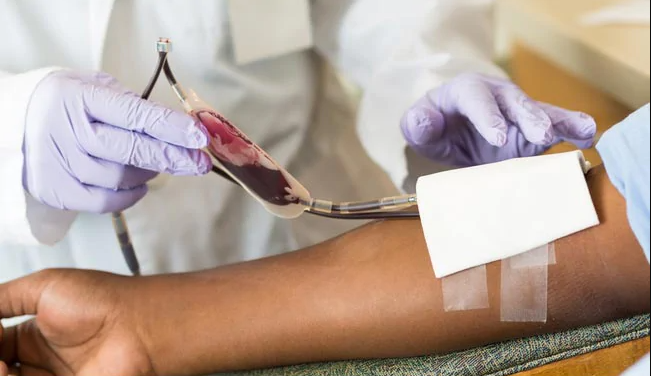Nigeria and The Netherlands have entered into a partnership agreement aimed at addressing blood shortages and reducing unnecessary suffering and deaths in Nigeria.
The signing ceremony took place in Abuja, where Prof. Muhammad Ali Pate, Coordinating Minister of Health and Social Welfare, highlighted the alignment of the partnership with the National Health Plan’s goal to increase the country’s blood supply.
The partnership
Represented by Dr Abdu Mukhtar, National Coordinator of the Presidential Unlocking Healthcare Value-Chain Initiative, Prof. Pate emphasized that the agreement would not only boost the blood supply but also unlock the health sector’s value chain, encouraging private sector participation.
- The initiative is in line with President Bola Tinubu’s vision to establish a coordinated blood ecosystem, aiming to enhance the overall health landscape.
- Prof. Pate stated, “Its primary goal, however, is to increase the blood supply, thereby saving the lives of numerous Nigerians.”
- The partnership also focuses on introducing an autologous blood service, a method resonating with the National Health Plan and the Presidential initiative.
Prof. Saleh Yuguda, Director-General of the National Blood Service Commission (NBSC), stressed that this approach would play a crucial role in reducing blood shortages, particularly for treating conditions like cancer and sickle cell anaemia.
- He highlighted that incorporating autologous transfusions would mitigate blood shortages in critical situations, allowing donated blood to be reserved for specific conditions. The goal is to optimize the blood value chain, improving quality and efficiency in the supply system.
Ms Marjolijn Sonnema, Dutch Vice Minister for Public Health, acknowledged the challenges of implementing autologous blood transfusions in regions with limited resources.
- She explained that the partnership would overcome these barriers by introducing HemoClear’s pioneering micro-filtration technology, enabling the collection and processing of a patient’s blood during surgery without the need for additional machinery or power sources.
Vincent Franssen, CEO of HemoClear, expressed confidence in the partnership, stating, “Partnering with the NBSC, a regional leader in blood service expertise, guarantees streamlined implementation support, offers premier clinical training and logistics know-how, and sets the stage for future local production.”
The NBSC/HemoClear alliance is financially supported by the French Fund for Innovation in Development (FID), reinforcing the commitment to global health improvements.

